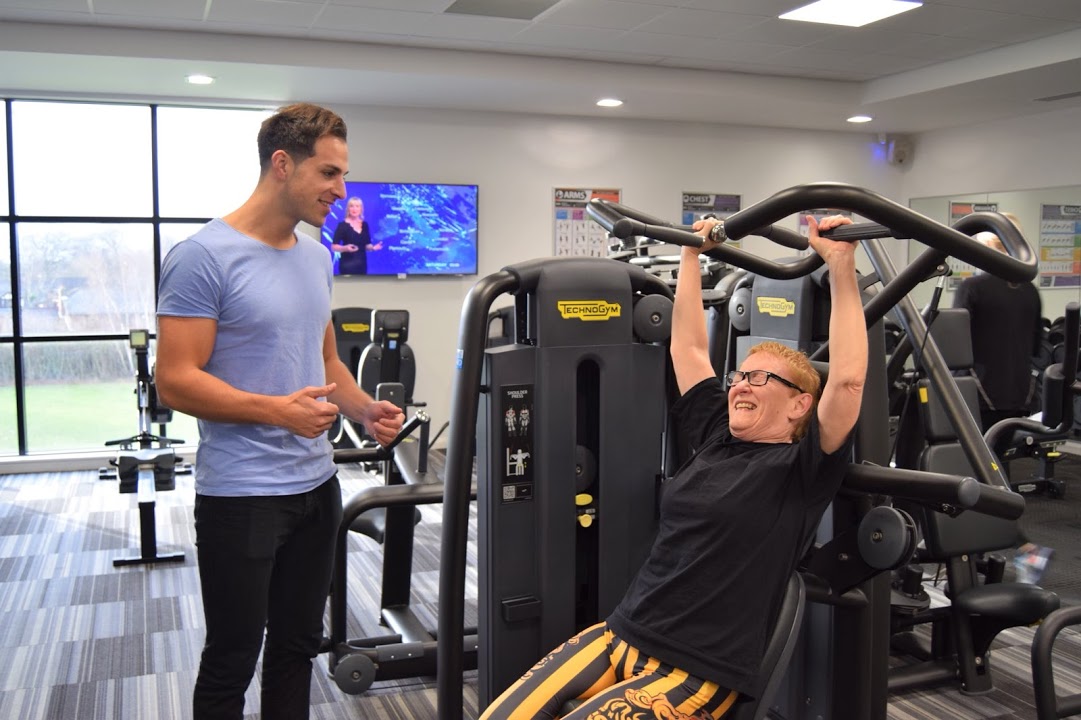Losing mobility is one of the most debilitating issues facing older adults and exercise could help prevent this. Muscle weakness is a common cause of falls and fractures in the elderly and can therefore be prevented.
According to new research by Liverpool Hope University published in the European Journal of Applied Physiology "incredible" improvements in muscle strength have been reported in a study involving older people. There were up to 60 per cent gains even after a short four month programme of weight-based exercise. The study states that it is "never too late to start lifting weights and weight training could be vital in maintaining health in old age".
Combating sarcopenia

As we age, our muscles get weaker (a process known as ‘sarcopenia’). Unless countered through appropriate exercise this muscle weakening can naturally leave people prone to falls, fractures and becoming socially isolated, as they lose the ability to go about their daily routine.
Study researcher Dr Kate Mooney PhD says combating muscle wastage will prove key in tackling a whole host of diseases associated with the UK’s ageing population. Kate, who has been looking at how nutrition and exercise could improve health in a group of older adults, says it’s important older adults incorporate weight training into regular aerobic exercise. She adds: “Our study shows that it’s never too late to start lifting weights. The improvement of muscular strength noted in this study is crucial for maintaining older adults’ independence".
She goes on to say, “Losing mobility is one of the most debilitating issues facing older adults and exercise could help prevent this. Muscle weakness is a common cause of falls and fractures in the elderly". She follows, "But resistance exercise, designed to increase muscle strength as well as functional ability and physical performance could have a significant impact on prevention of age-related diseases". Her recommendation is, “Older adults should be taking part in a combination of weight based training and aerobic exercise, at least two to three times per week, as per NHS recommendations. And it’s never too late to begin!”
Remarkable improvements in muscle strength
And Dr Kate says: Participants who took part in the exercise programme showed some remarkable improvements in their muscular strength - after just 16 weeks of training.
The following outcomes were reported in the study group:
- an increase in handgrip strength of 9%, (an important indicator of overall muscle strength)
- leg press strength increased by 45 per cent
- chest press by 60 per cent, and
- bicep curl by 33 per cent
All the people who took part in this trial were new to weight training, but since finishing a group of participants have continued to train together, showing the development of positive habits and an enjoyable social element.
Is there a role for additional whey proteins?
With regard to nutrition the study found that adding whey protein to diets, (a popular supplement thought to help improve muscle protein synthesis and promote the growth of lean muscle mass), in fact had no additional benefits in those who already consuming adequate protein.
Dr Grace Farhat, lecturer in Food Science and Nutrition at Liverpool Hope University, adds: “The study concluded that whey protein didn’t enhance the effects of exercise training on muscle strength and function. “The important point is to consume enough protein to support muscle health, for older adults this is approximately 20-30g per meal, or the equivalent of one chicken breast, a tin of tuna or cup of chickpeas.”
The study was published in the European Journal of Applied Physiology.













